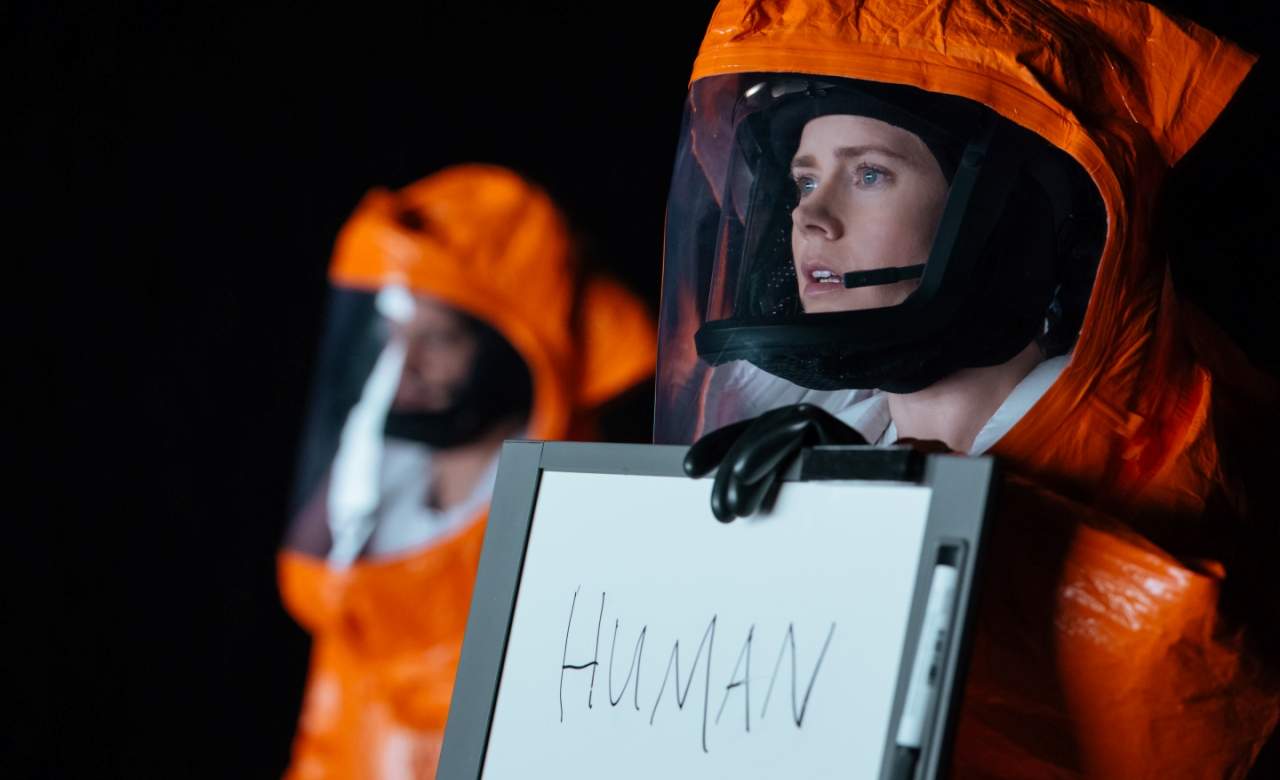Arrival
An engaging, cerebral and often gripping sci-fi thriller that actually puts an emphasis on the science.
Overview
Seven years ago Dustin Hoffman, himself a former chemist, issued a stinging rebuke of the increasingly 'dumb' science fiction movies making their way onto our screens. Laziness was at the heart of his complaint, as he accused writers of opting for meaningless techno-babble instead of taking the time to invent intelligent solutions to their characters' scientific problems. Hoffman even went so far as to help sponsor the Science and Entertainment Exchange in order to promote films deemed to respect scientific principles and debunk those which are unrealistic. It wasn't that sci-fi movies couldn't have action in them, he explained, they just needed to ensure the sci remained the prevalent part.
Arrival, the new film by Sicario and Prisoners director Denis Villeneuve, is a movie of which Hoffman would be proud. Beginning conventionally in the vein of an Independence Day or The Day The Earth Stood Still, the film opens with the sudden arrival of twelve mysterious alien spaceships in various locations around the world. Yet rather than launch an attack, they sit curiously idle, as the humans debate their origin and intent. Rather than focusing on action, Arrival instead veers much more towards the themes of Sphere (which starred Hoffman) or Contact, in that the world's scientists, rather than its soldiers, form the core team around which the story revolves.
Fronting the US team are Dr Louise Banks (Amy Adams), America's foremost linguistics expert, and Ian Donnelly (Jeremy Renner), a theoretical physicist. Their goal is singular, yet phenomenally complex: figure out how to communicate with the aliens and convey one simple, critical question: "what is your purpose here on earth?" What follows is a fascinating study in language, history and non-verbal communication, where variables and complexities in even the most rudimentary grammatical expressions become seemingly insurmountable obstacles. Add to that the paranoia of military and CIA liaisons (Forest Whitaker and Michael Stuhlbarg, respectively) whose focus rarely extends beyond fears of an invasion, along with the vicissitudes of international diplomacy wherein sharing and cooperation are considered hallmarks of weakness, and you find in Arrival an intensely engaging, cerebral and often gripping sci-fi thriller.
Based on the cult novella "Story of Your Life" by Ted Chiang, Arrival blends sumptuous cinematography with weighty abstractions that, for the most part, land with an assured touch. Glimpses into Louise's personal life raise questions about time and our linear perception of it, and only rarely does the script indulge in the kind of corny musings traditionally found in freshman philosophy essays. Adams's performance is the clear standout, around which her supporting cast plays it with impressive reserve. The score by Jóhann Jóhannsson, meanwhile, shifts effortlessly between beautiful and bombastic. Intelligent and restrained, Arrival is a welcome addition to the sci-fi canon that wows you with its brains rather than simply its special effects.





